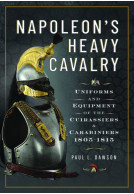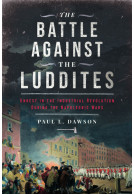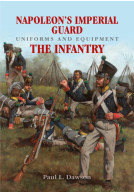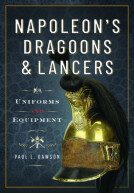French Invasions of Britain and Ireland, 1792–1815 (Hardback)
The Revolutionaries and Spies who Sought to Topple the Government of King George

Pages: 256
Illustrations: 16 mono illustrations
ISBN: 9781399068086
Published: 8th August 2023
(click here for international delivery rates)
Order within the next 5 hours, 36 minutes to get your order processed the next working day!
Need a currency converter? Check XE.com for live rates
Not since 1066 – at least in popular myth – has an enemy force set foot on British soil. The Declaration of War with Revolutionary France in 1793 changed all that. In Ireland, the desire for home rule led Irish republicans to seek support from France and like-minded radicals in England. The scene was set for the most dangerous period in British history since William the Conqueror.
Irish dreams of independence, and of Revolutionary France’s goal of securing her borders against the monarchies of Europe, coalesced. What better way of keeping Britain out of a war if her troops were tied down in Ireland? If the French could support an Irish Revolution, this would ensure the British Crown would be more focused on internal security than fighting overseas. The French, with a network of secret agents in Ireland and England, made their preparations for invasion
The invasion plan had been prepared by the English-born American political activist, philosopher, theorist and revolutionary Thomas Paine, whose writings had helped inspire the Americans to fight for independence from Britain. Paine sought to seize on discontent in England against the government of William Pitt and the increasing radicalism fostered by Wolfe Tone in Ireland for home rule, to topple the government, and bring about an Irish and English Republic.
A network of spies spread out across the England, Scotland and Ireland gathering information for the French and arming radical groups. Everything was set for an invasion. Mad King George’s throne was set to be toppled, Charles James Fox installed as leader of the embryonic English Republic, while Ireland, under Wolfe Tone, would have home rule – so too Scotland.
But it took six years for the French to finally mount their attacks upon Britain. And when the invasions were eventually launched, they crumbled into chaos. This book seeks to charts the events that led up to the French invasion of Ireland in 1798, and how the invasion was foiled by William Pitt’s own web of secret agents. William Huskisson, best known for being killed at the opening of the Liverpool and Manchester Railway, led a dangerous life as a spy master, whose agents foiled the French at every step.
Drawing on documents in the French Army Archives, as well as the records of the French Foreign Ministry and The National Archives in London, the largely forgotten story of the last invasion of Britain in 1797, as well as the final act of 1798, is revealed. Key documents are the campaign diary of the French commander from 1798, General Humbert, which has never been published in French or English. This, then, is the complete untold story of the French invasions and their sabotage, told for the first time in some 200 years.
"The information in this book contains details of several invasion plans, including numbers of ships and troops, that could be used to provide an historical background to a campaign. Alternatively, the clandestine activities of English or Irish revolutionaries and government agents might form a background for roleplay or skirmish games..."
Miniature Wargames
About Paul L. Dawson
Paul L. Dawson BSc Hons MA MIFA FINS, is a historian and author, specialising in the French Army of the Napoleonic War. In addition, as a noted equestrian, this allows him to have a greater understanding of what was and what was not possible for cavalry and other troops which utilised horses. Working as a historical tailor producing museum-quality replica clothing gives him a unique insight into construction techniques of the period, as well the knowledge and ability to decipher documents from the period.
Fighting Napoleon at Home The Real Story of a Nation at War With Itself (Hardback)
From the sun-baked sierras of Spain, through the stormy waters off Cape Trafalgar to the muddy and bloody fields of Waterloo, Britain’s soldiers and sailors were notching up victories which set the country on the path to becoming the greatest power on the planet. We like to imagine the country was unified against a common enemy, France, and the Tyrant of Europe – Napoleon. Yet if we scratch the surface, we find a nation not just at war with France but with itself. The great successes of Wellington and Nelson, and the glamour of Regency London, cover over the cracks of a divided society, of…
By Paul L. DawsonClick here to buy both titles for £53.00






















